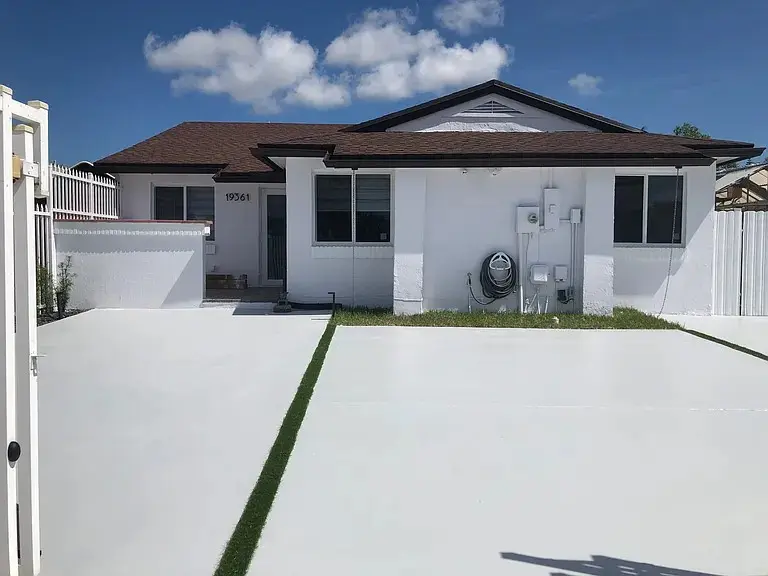Have you ever thought about living in a loft above a storefront or turning a warehouse into a unique living space? It sounds appealing—but before you sign a lease, you need to understand the rules. So, can you rent commercial property as residential in Texas? The short answer: not without following some key zoning and legal requirements.
Let’s break down the rules, risks, and possibilities so you can make an informed decision—whether you’re a tenant or a property owner.
—
What Texas Zoning Laws Say About Living in Commercial Property
Zoning is what determines how a property can legally be used—residential, commercial, industrial, or mixed-use. In Texas, most cities and counties have zoning ordinances that separate residential and commercial uses.
If a property is zoned as commercial, it’s not automatically legal to use it as a residence. Living there without proper approvals can lead to:
- Fines from the city
- Eviction
- Legal liability for property owners
Before renting or moving into a commercial property, always check with the local planning or zoning office.
—
Is It Ever Legal to Live in Commercial Property in Texas?
Yes—but only under certain conditions:
1. Mixed-Use Zoning
Some areas in Texas are zoned for mixed-use, meaning they allow both commercial and residential use. Think of downtown districts with shops on the first floor and apartments above.
- Zoning Variance or Re-Zoning
A property owner can apply for a zoning variance or request a zoning change. If approved, it can allow residential occupancy in a commercial space. - Conditional Use Permits
In some cities, a conditional use permit (CUP) can be granted to allow residential use in a commercial area with specific conditions (like fire exits, parking, etc.).
—
Why People Want to Live in Commercial Spaces
There are a few reasons people are drawn to the idea of living in commercial property:
- Larger open spaces (great for studios or lofts)
- Lower rent per square foot in some areas
- Unique architectural styles
- Convenience of living where you work (especially artists or small business owners)
But it’s important to balance those perks with the legal and safety issues.
—
The Risks of Renting Commercial Property as a Home Without Approval
Living in a commercial property that isn’t approved for residential use can be risky. Here’s why:
- Lack of required safety features like proper plumbing, ventilation, and fire suppression systems
- No legal protection as a residential tenant under Texas landlord-tenant laws
- Insurance may not cover injuries or damage in an unapproved residence
- The city could force you to leave with little notice
🛈 If you’re a landlord considering renting a commercial space as a living area, you could face serious legal consequences if it’s not properly zoned or permitted.
—
How to Legally Rent Commercial Property for Residential Use
If you’re seriously considering this option, here’s what to do step-by-step:
- Check the property’s current zoning status with the city or county zoning office.
- Ask if mixed-use or residential use is allowed under current zoning.
- If not allowed, discuss applying for a zoning change or variance with the property owner.
- Ensure the space meets residential building codes (such as electrical, plumbing, and fire safety).
- Have a clear lease agreement that spells out use of the property and tenant rights.
Never assume it’s okay just because the owner agrees. You need the city’s approval too.
—
Real-Life Example: Renting a Studio in Downtown Dallas
In some urban areas like Dallas, Fort Worth, Austin, or Houston, you’ll find properties that are already zoned for mixed-use. Artists and creatives often lease these spaces to live and work under one roof.
But if you try to do the same thing in a suburban commercial plaza or industrial zone without permits—you could be in violation of the law.
—
FAQs: Renting Commercial Property as Residential in Texas
🟢 Can I live in a warehouse in Texas?
Only if the warehouse has been rezoned or permitted for residential use. Otherwise, it’s not allowed.
🟢 Is it cheaper to live in commercial property?
It can be cheaper, but the risks, fines, and lack of tenant protections can outweigh the savings if it’s not legally approved.
🟢 What happens if I get caught living in a commercial property?
You may be forced to leave, and both you and the property owner could face fines or penalties.
—
Final Thoughts: Should You Live in a Commercial Space?
The idea of living in a commercial property may seem modern and flexible, but in Texas, it’s more complicated than just signing a lease. If you’re interested in renting commercial property as residential, make sure everything is legal and documented—protecting yourself and the property owner.
For more property-related guides, check out:
- “Can You Live on Commercial Property?”
- “How Far From Property Line Can I Build a Shed”
- “Can You Transfer Property With a Lien”
